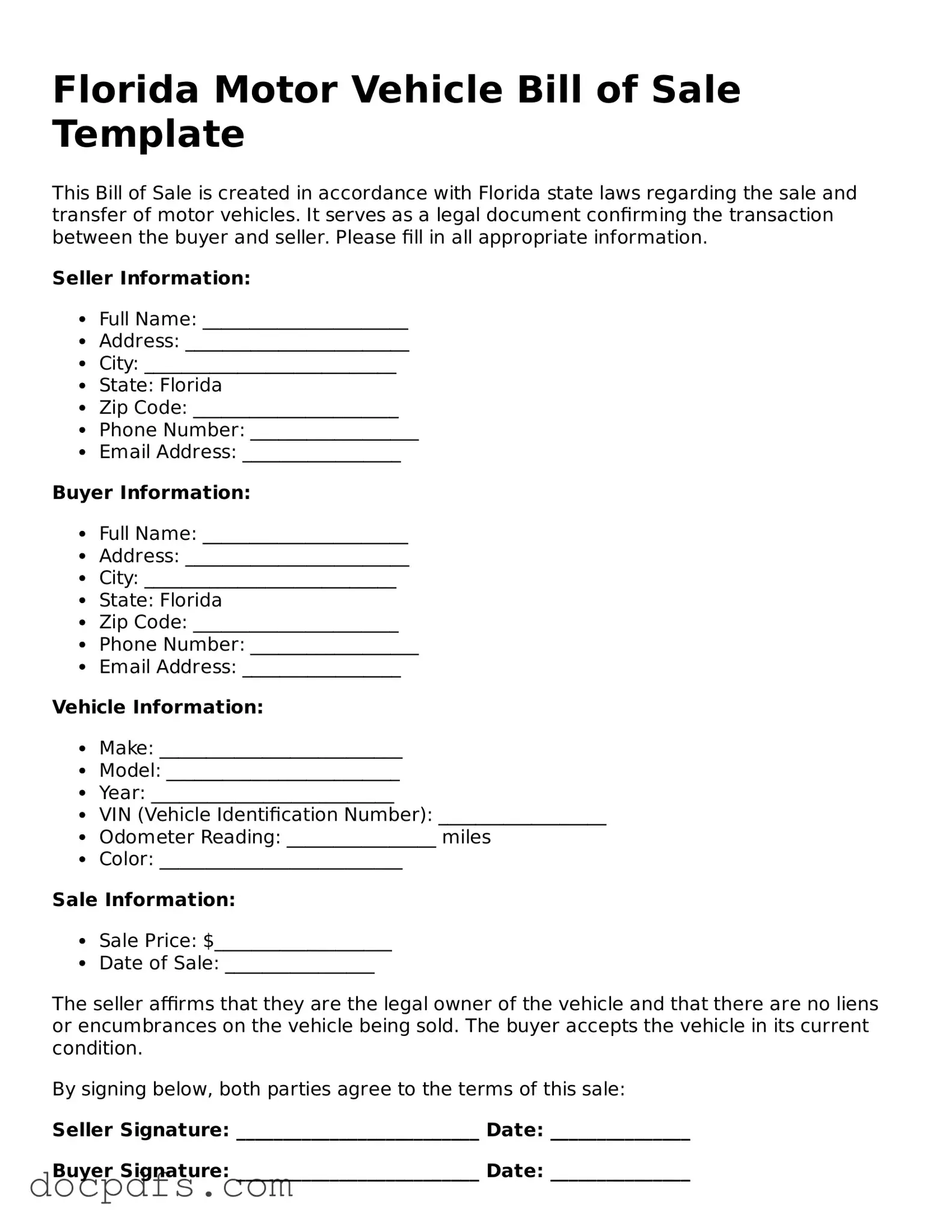What is a Florida Motor Vehicle Bill of Sale?
A Florida Motor Vehicle Bill of Sale is a legal document that records the sale of a vehicle between a buyer and a seller. This form serves as proof of the transaction and includes important details about the vehicle, such as its make, model, year, and Vehicle Identification Number (VIN). It also captures the names and addresses of both the buyer and seller, along with the sale price.
Why is a Bill of Sale important?
A Bill of Sale is important for several reasons:
-
It provides legal protection for both the buyer and seller by documenting the transaction.
-
The document can help establish ownership and is often required when registering the vehicle with the Department of Highway Safety and Motor Vehicles (DHSMV).
-
It may be necessary for tax purposes, as it can serve as proof of the sale price when calculating sales tax.
Do I need a Bill of Sale for every vehicle sale in Florida?
In Florida, a Bill of Sale is not legally required for every vehicle sale. However, it is highly recommended. Having this document can simplify the process of transferring ownership and registering the vehicle. Additionally, if the vehicle is sold for a certain amount, the Bill of Sale may be needed for tax documentation.
A comprehensive Bill of Sale should include the following information:
-
The full names and addresses of both the buyer and seller.
-
The vehicle’s make, model, year, and VIN.
-
The sale price of the vehicle.
-
The date of the sale.
-
Any disclosures about the vehicle’s condition, such as if it has been in an accident or has any known issues.
-
Signatures of both the buyer and seller.
You can obtain a Florida Motor Vehicle Bill of Sale form from several sources. The Florida Department of Highway Safety and Motor Vehicles (DHSMV) website provides a downloadable form. Additionally, many local tax collector’s offices have copies available. You can also find templates online that can be customized to suit your needs.
Is a Bill of Sale the same as a title transfer?
No, a Bill of Sale is not the same as a title transfer. The Bill of Sale documents the sale, while the title is the legal proof of ownership. After completing the sale, the seller must sign the title over to the buyer, who will then need to take both the title and the Bill of Sale to the DHSMV to officially transfer ownership and register the vehicle.
Can a Bill of Sale be used for a vehicle purchased from a dealership?
What should I do if I lose my Bill of Sale?
If you lose your Bill of Sale, it is advisable to contact the seller to request a duplicate. If that is not possible, you can create a new Bill of Sale, documenting the same information as the original. Make sure both parties sign it again. Keeping a copy of all vehicle-related documents is a good practice to avoid complications in the future.

